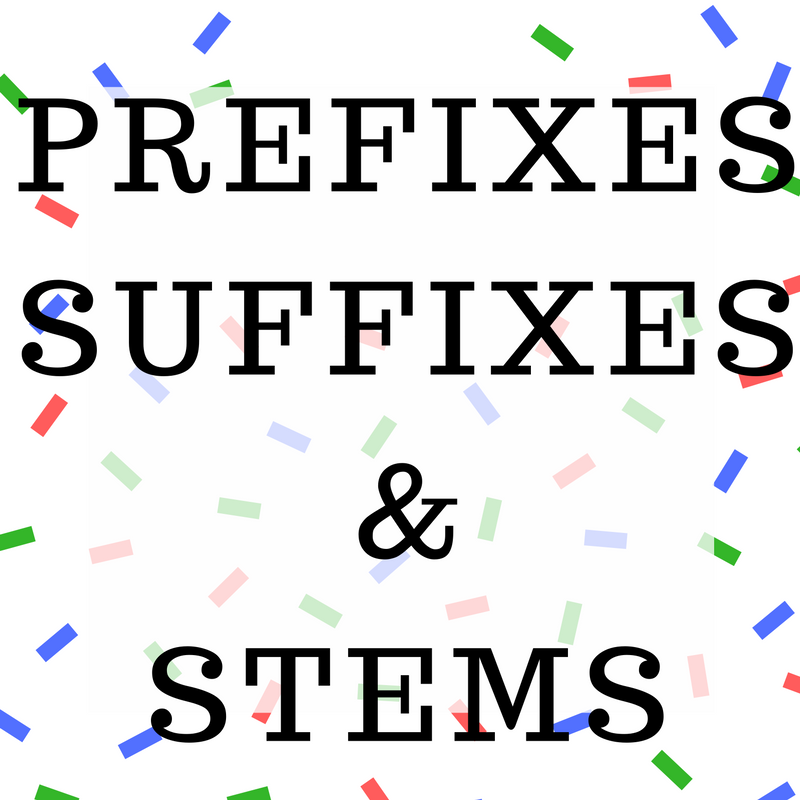
What’s in a Word: Prefixes, Suffixes, and Stems
 Devon Balwit
Devon Balwit September 12, 2016
September 12, 2016 How can I improve my English? Useful English VOCABULARY!
How can I improve my English? Useful English VOCABULARY!
As covered in our English classes, a really good way to increase your word power in English is to learn common prefixes, stems, and suffixes.
Prefixes are the part of a word that comes at the beginning before its stem or root.
For example, most students know that “re” means “again.” This helps them when they learn new words that begin with “re,” such as:
- reply
- replay
- restore
- review
- revisit
- regain
They know the prefixes “com” and “con” mean “together.” This helps when they see words like:
- combine
- communicate
- compress
- confirm
- convene
(Spelling Hint: We use com before “b,” “p,” and “m” and con before all other letters.)
The prefix “e” means “out of” or “away.” This makes it easier to understand words like:
- erase
- evict
- evoke
- evade
A stem is the core or heart of a word.
For example, the stem “voc” means voice. If you know this, it becomes easier to predict what a word like vocal means—talking a lot.
Once we start combining our knowledge of prefixes with our knowledge of stems, we can really show off. Look at the three prefixes we learned in combination with this stem “voc.”
- When we revoke something, like a license, we take it back, essentially taking away your voice.
- A convocation is a gathering where people come together to discuss something important.
- We notice an evocative thing. It calls out to us about something.
A suffix is the part of the word that comes at the end. Suffixes often tell us about the part of speech of a word.
For example, “tion” and “sion” are suffixes that tell us something is a noun. Think of words like:
- pollution
- ambition
- evolution
- passion
- session
- depression
There are many lists of these word parts on-line (see below). They are a necessary resource for anyone planning on attending an American university. They will help you succeed on the TOEFL test and in the classroom.
On-Line Resource List
Scholastic: List of Most Common Prefixes & Suffixes
English Club: HUGE List of Prefixes
PrefixSuffix.com: Chart of English Language Roots
My English Teacher: A BIG List of Prefixes & Suffixes
Video from BBC that includes a leveled set of quizzes on this topic
BBC: VIDEO Explaining Prefixes & Suffixes
Categories
- Effective English WRITING tips
- How can I improve my English READING skills?
- How can I improve my English SPEAKING ability?
- How can I improve my English?
- IELTS TOEFL Strategies
- Important English GRAMMAR you should learn!
- Learn English SLANG, IDIOMS, & PHRASES!
- Life in PORTLAND News
- Methods to improve English LISTENING skills!
- OVERSEAS English Study Tips
- Student of the Month
- Students at PELA
- Useful English VOCABULARY!







